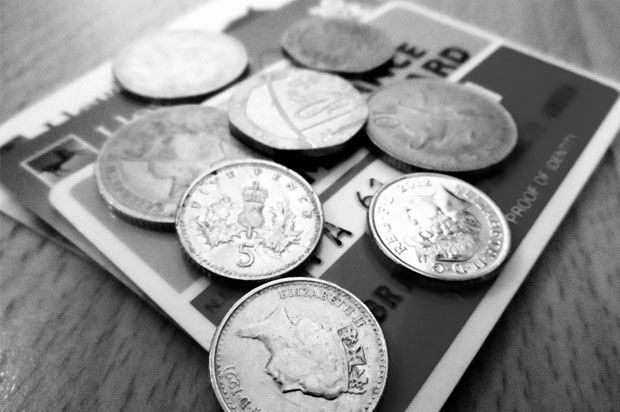Income tax
What is income tax, exactly? Everyone should understand the basics of income tax, but you might only start thinking about it when there's a large chunk missing from your pay packet, or if HMRC just sent you a scary letter.

How much income tax have you paid?
Income tax is used to pay for services provided by the state – such as education and healthcare. It is calculated by working out how much money you earn (your income) and then taking a proportion of that money in tax.
How much is income tax? For the 2023/24 tax year your basic personal allowance (or tax-free amount) is £12,570. After that you’re generally taxed at the following rates:
- Any income up to £50,270 will be taxed at 20%
- Income between £50,270 and £125,140 will be taxed at 40%
- Anything over £125,140 will be taxed at 45%
Income tax is payable on:
- Earnings from full and part-time work
- Bonuses and commission (including tips)
- Many benefits, including Jobseekers Allowance, Carer’s Allowance and Employment and contribution-based
- Employment and Support Allowance (ESA). Visit gov.uk for the full list
- Profits from a business
- Dividends from shares
- Income from renting out rooms or a property
- Interest from money that you have in a bank or building society account
What income is not taxable?
- Student grants and loans
- Scholarships
- Most research awards
- Housing benefit
- Allowances from parents or your husband or wife
- Grant from the University Access Fund
- Some benefits, including Child Benefit and Child Tax Credit
If you have income from any other source and you are unsure whether it is taxable or not you can ask HM Revenue and Customs (HMRC) for advice. A comprehensive list of what is taxable is available on gov.uk.
Personal allowance
Most people are entitled to earn up to £12,570 tax-free over the tax year (2021/22). Extra allowances are given in some circumstances, such as if you are registered blind.
If you think you may be eligible for extra allowances look at the form entitled ‘Tax Allowances and Reliefs‘ for more information.
How much tax will I pay?
- Employed? Your employer will deduct tax from your pay and pass it on to the HMRC, but you will need to check your PAYE code to make sure you are paying the right amount. See our article on understanding Pay As You Earn for more information.
- Self-employed? You must keep records of your earnings, calculate how much you owe and pay the tax due to the HMRC twice a year. This is known as Self Assessment, find out more here.
- Unemployed? You do not have to pay income tax on your Jobseeker’s Allowance or Universal Credit if your total income for the year is below your personal allowances.
How does my employer know how much tax to deduct?
How much is income tax, you ask?
If it’s your first job, ask your new employer for a P45. Depending on your circumstances you might then receive a form from the tax office asking for details of your income and employment history. When they receive your completed form the tax office will issue you and your employer with a tax code and provide you with a copy.
If it’s not your first job, your previous employer should have given you a P45 when you left. This will tell your new employer how much you have earned in the current year (if anything) and how much tax (if any) you have paid so far in the current tax year. This information enables them to calculate the correct amount of tax due from your next pay packet. If you have lost your P45, or didn’t receive one, you will have to go through the P45 procedure above.
What is a P60?
A P60 details your earnings and tax deductions for the last tax year. Your employer provides it. The law requires you to keep a record of your taxable income for at least 22 months after the end of the current tax year.
Self-employed people do not receive a P60, but must keep records for up to six years after the relevant tax year.
Do students pay tax?
You will not be liable to pay tax if you earn less than your personal allowance of £12,570 (2023/24).
If you only work during the holidays you probably won’t go over your personal allowance.
However, because of the way tax is worked out on your monthly or weekly pay, you may have some tax taken off because if you were paid that amount every month for a whole year it would go over your personal allowance. If you pay too much tax, HMRC will send you a cheque at the end of the financial year paying you back. If you can’t wait that long – give them a call.
If you work during term time you have to pay tax in the normal way through the pay as you earn (PAYE) system. This means tax is taken from your income before you’re paid. If you’ve paid too much tax, you can reclaim it at the end of the tax year (5 April).
Next Steps
- The Money Helper offers free, unbiased and independent advice about all financial matters. 0800 138 7777
- Chat about this subject on our Discussion Boards.
By Holly Turner
Updated on 25-Jun-2021
No featured article














